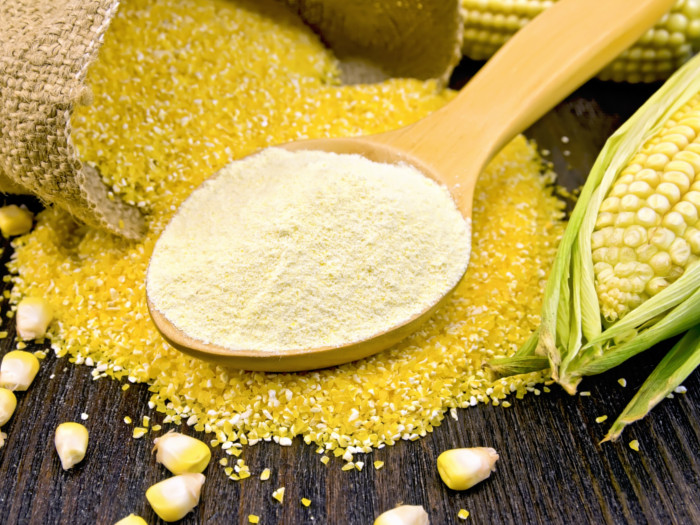Knowing your way around corn flour substitutes is necessary if you are cooking for someone with dietary restrictions, or if you are simply looking for a healthier alternative.
Corn Flour Substitutes
Finding corn flour substitutes isn’t very difficult, as the consistency is relatively easy to match with other flours and common ingredients. Not to be confused with corn starch, corn flour is a common ingredient in dessert recipes and acts as a thickener in sauces and soups.
Although it is an important ingredient in these preparations, it is easily replaced by a few excellent household substitutes. The flavor may be slightly changed in some cases, so be sure to choose the most appropriate substitution.

Cornflour, commonly known as cornstarch, is the finely ground version of corn kernels. Photo Credit: Shutterstock
Wheat Flour
This is the most common of all the alternatives. Wheat flour and corn flour share a similar flavor and both can serve as a thickener in recipes. We recommend that you double the wheat flour when substituting for corn flour, however, to achieve the same effects. Obviously, wheat flour is not a gluten-free substitute. [1]
Rice Flour
This rice byproduct is a healthy alternative to corn flour that will not alter the flavor of your dish too noticeably. Unlike wheat flour, it can be a good gluten-free option. Rice flour has a similar texture and thickness to corn flour and can be substituted in recipes at a 1:1 ratio. Rice flour is a particularly good substitute to use in baking. [2]
Arrowroot Starch
Made from the arrowroot plant, this starch is another thickening agent that works in a similar way to corn flour. Although this can work well in both sweet and savory recipes, it is worth bearing in mind that this starch can quicken the listed cooking time. As arrowroot is a stronger thickener than corn flour, you will need about half the amount of arrowroot. [3]

Arrowroot Photo Credit: Shutterstock
Potato Starch
Extracted from potatoes, this starch can be used to substitute for corn flour at a 1:1 ratio. It might add an earthy flavor to your dish and is best used for savory recipes, and it is also known to be more filling.
